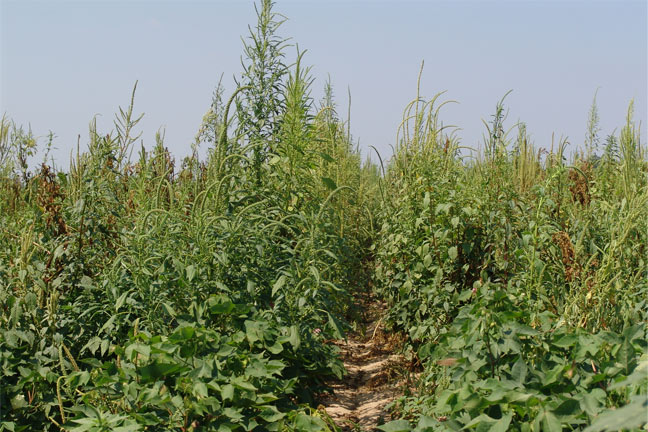Agri Innovations
DuPont Pioneer Scientists Suggest a Proactive Weed Management Approach
Thu, 22 May 2014 12:39:57 CDT

The best advice weed scientists can give to growers who are not currently challenged with weed resistance is this: don't rely on a single herbicide weed-control program.
Mark Jeschke, agronomy research manager at DuPont Pioneer, says following this advice is important: "The easiest way to work another mode of action into weed-control management is often to apply a preemergence product." As soybean planting wraps up in much of the Midwest along with the opportunity to apply a preemergent herbicide, growers can still take proactive steps to manage weed resistance.
Targeting weed escapes should be a top priority when looking for herbicide-resistant weeds and Jeschke says scouting is key to staying on top of resistant weed populations. "Field edges and entrances are often where resistant weed populations gain a foothold," he says.
Pioneer agronomists recommend growers not only scout their fields, but also adopt a diversified approach toward weed management focused on preventing weed seed production and reducing the number of weed seed in the soil. Integrated management practices can help minimize risk while providing a more consistent, effective weed control program. In addition to preemergence herbicides, weed control can be heightened with crop rotation, cover crops, tillage practices and cleaning tillage and harvest equipment.
"Weed seeds carried by machinery can spread from field to field," Jeschke says."An additional recommended practice is to clean tillage and harvest equipment when moving between fields."
Midwest corn growers need to be aware of a handful of herbicide-resistant weed species on scientists' radar. Palmer amaranth, typically a southern weed, seems to be naturally extending its range northward. Closely related to waterhemp, it has similar biology but a more rapid growth rate.
"Weed management should be a proactive effort for growers," Jeschke says. "If you aren't on top of it right away, you can wind up with a very challenging weed control problem."
Other herbicide-resistant weeds-such as marestail or horseweed-are easily disseminated by the wind and spread rapidly. Meanwhile, giant ragweed (with larger seeds, yet fewer seeds per plant) is a competitive species but does not spread as rapidly as pigweeds and marestail. Proactive control of giant ragweed is likely to have a positive impact on herbicide-resistant infestations.
"Resistant weed populations explode quickly," Jeschke says. "The discovery of a few resistant weeds one year can lead to real challenges with your herbicide program in just a few years. Resistant weed populations can grow extremely fast."
WebReadyTM Powered by WireReady® NSI


















